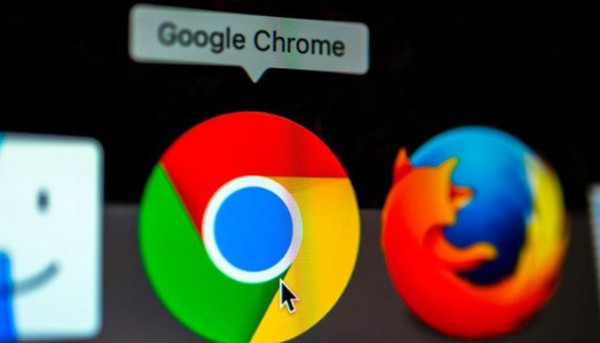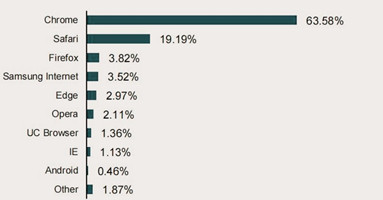
At present, the global browser market is showing a situation of "the stronger the stronger, the weaker the weaker". With the help of Google's huge traffic, the Chrome browser accelerates its expansion; while some niche browsers are increasingly devoid of survival space under the attack of giants, such as Firefox.

Firefox goes to the minority
For many people, Firefox also carries many youthful memories. Public information shows that the Firefox browser was born in 2002. At that time, the main player in the global browser market was still IE, which is now in decline.
However, although IE browser has the largest market share, its reputation is really bad. "Difficult to use", "slow speed", and "bugs" have become the main impressions of most users of IE browser.

Therefore, when the Firefox browser came out with a sophisticated design, the original market share of IE began to be robbed. After all, compared with the bloated IE browser at that time, the installation package of Firefox browser is less than 200M, and the page is beautiful, the running speed is faster, and it can even open PDF files and play audio and video.
Soon, Firefox successfully won the crown of "the best browser". According to the report of Kuaishou Technology, Firefox and Internet Explorer at its peak had been fighting against each other, and the two together won 90% of the desktop browser market.

However, the glory of Firefox did not last long. According to the data released by the Firefox official on July 19, the monthly active users of Firefox remained at around 200 million. In January 2019, this data was 244 million. This means that the loss of Firefox users has reached 44 million.
Defeated by Google and Microsoft
From the industry leader to the niche market, the decline of Firefox can't help but be embarrassing. And behind this, there are not only the general trend of the industry, but also the reasons of Firefox itself.
As pointed out in the analysis of Eastern Fortune.com, users lost on Firefox are basically diverted by Google's Chrome and Microsoft's Edge browser. The reason why these two browsers can stand out is mainly because of the "golden master father" behind them.

As we know, Google and Microsoft have a complete ecological construction. Google's Android system and Microsoft's Windows system are the overlords of mobile and desktop respectively.
Based on this, Chrome and Edge, which are the default browsers, have natural traffic effortlessly. Especially Google's Chrome browser, as the "originator" of open source browsers, more and more developers modify and use Google's open source code, which directly promotes Chrome's market share over Edge.
In addition to the impact of giants such as Google, the decline of Firefox is also related to itself. Users have paid more and more attention to the protection of privacy. Unfortunately, Firefox has not paid enough attention to privacy issues.
The global browser market share calculated by StatCounter shows that the Chrome browser’s market share is as high as 63.58%, and the industry's dominant position is still difficult to shake for a while. And ranked second is Apple's own ecological browser Safari. Firefox, which does not have an ecological protection, can only rank third in the industry, with a market share of only 3.82%.

Where should Firefox go?
Faced with the massive loss of users, the influence of Firefox is inevitably affected. In order to save the decline, Firefox has also made a series of changes.
For example, in response to the ecological flaws of the Firefox browser, Firefox once launched the Firefox OS operating system in July 2012. But because the Android operating system is too powerful, and the source code is easy to be copied and other "disadvantages", this operating system has not caused much splash.

Regarding user privacy protection, Firefox has introduced an enhanced cookie cleaning function in the latest Firefox 91 official version update to emphasize user privacy protection.
And the news from IT House shows that in order to further catch up with Google and others, Firefox will introduce the function of blocking downloads in unsafe environments in the new version released in September. This feature is similar to that introduced by Google in the Chrome 86 browser.
Whether these measures will help Firefox to return to its leading position remains unclear. After all, the current Google Chrome browser is not IE many years ago, and it is not easy for Firefox to leverage the dominance of the Chrome browser.
However, Firefox is gratifying that although the number of users has been greatly reduced, the average use time per user has increased from 4.8 hours to 5.25 hours, and user loyalty has increased to a certain extent. This is good news for Firefox, which is struggling to catch up.



